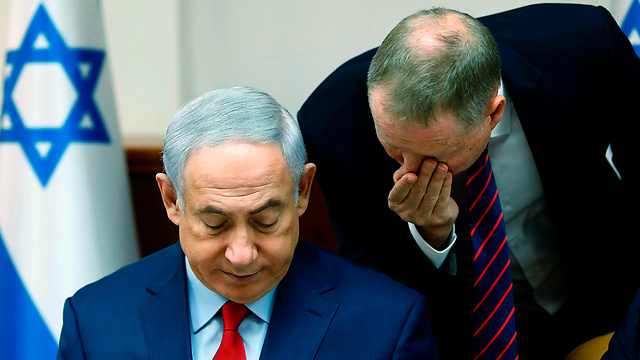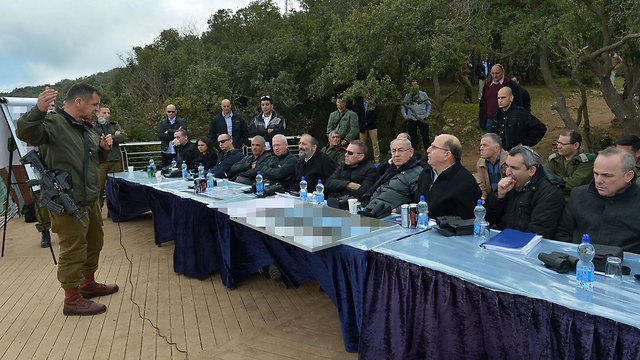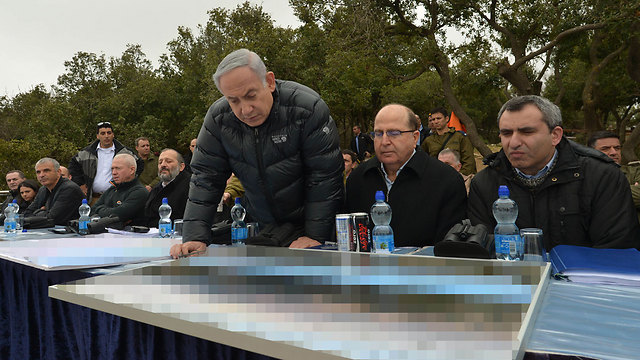Op-ed: PM Netanyahu’s push to have the Security Cabinet decide on going to war, instead of the government, has riled up many of his critics. But in this instance, he happens to be right: such important decisions are best made by a small, well-informed forum.
This week, it was announced that Prime Minister Benjamin Netanyahu is angling to change the law so that so that the Security Cabinet, and not the entire government, will decide whether to go to war. Some rushed to attack the prime minister over this move. Some claim that this initiative is supposed to divert the discussion from his various corruption affairs, and some even claim that in this act, Netanyahu is trying to grant himself more and more power.
My opinion is different. Prime ministers and ministers are more interested in authority when it comes to controlling budgets, regulations forcing appointments. About 20 years ago, when I was a special operations officer, then Defense Minister Itzik Mordechai sent me to present a specific operation to the prime minister, who was happened to be Netanyahu. Though the operation was under the authority of the defense minister, he wanted to include Netanyahu in the decision due to the sensitivity of that particular operation.

Upon arriving at the Prime Minister’s Office, however, I was blocked by military secretary, who told me that if the minister feels he wants to share responsibility, he should request a formal cabinet meeting, and that the prime minister has not personal interest in being a partner in this decision. In other words, prime ministers do not want to hold excessive powers in the field of security.
Regardless of the specific timing here, the initiative to transfer authority from the government to the Security Cabinet is a legitimate one. One reason stems from the change in the nature of wars: in the past, we experienced wars of an engrossing nature that took place every decade on average. It made sense for the decision to launch the Six-Day War would be taken by the entire government. Today’s reality is different: we find ourselves in small-scale wars every few years, with the potential to be drawn into such confrontations every few months. Any attack in Syria by convoys carrying weapons to Hezbollah could lead to a military response by the other side. Decisions are therefore needed more often and with greater pressure. It is not always possible to convene the entire government in real-time while managing to keep it a secret.

A second reason is the size of the decision-making forum. There are about twenty ministers in the government. If we add another ten military and security personnel, we arrive at a forum that does not allow for an effective discussion. The forum that makes up the cabinet is also a bit large, but one that can still facilitate a deliberation. It also should be noted that sometimes discussions on war or a large military operation must be effective and end at a given time, which cannot be guaranteed if the number of participants is too large.
A third reason is representation: the Security Cabinet includes the heads of all the factions that make up the coalition, as well as its important ministers. This is a forum that, by definition, is the core of the government.
A fourth reason is the need to be knowledgeable. One of the weaknesses that has characterized the Israeli governments over the years was the ministers’ insufficient familiarity with the military-related matters. It is better for those leading the Social Welfare or Health ministries to devote their time to the affairs concerning their own ministries instead of requiring them to spend their time and attention on an area in which their contribution to the discussion will be very little.

Instead of spreading sensitive security information between more ministers, it is better to consolidate them. The forum deciding on such matters should be as limited as possible, but as in-depth as possible. Most of the important discussions should not take place during war, but rather on quiet days. Take, for example, Lebanon and Gaza. Regarding Lebanon, there is debate over whether the right strategy is to fight against Hezbollah or wait until “the Third Lebanon War,” during which Israel will to define the Lebanon as an enemy state. This debate is right to be held calmly now and not as rockets are falling. The same goes for Gaza: is Israel’s current policy of adhering to Palestinian President Mahmoud Abbas’s sanctions the correct one, or should Israel acknowledge that Hamas is the legitimate authority in Gaza and therefore act in coordination with it to rehabilitate the Gaza Strip and prevent the next confrontation?
In conclusion: it is better to hold in-depth discussions in a small forum than to have superficial discussions in a large forum.
As reported by Ynetnews
